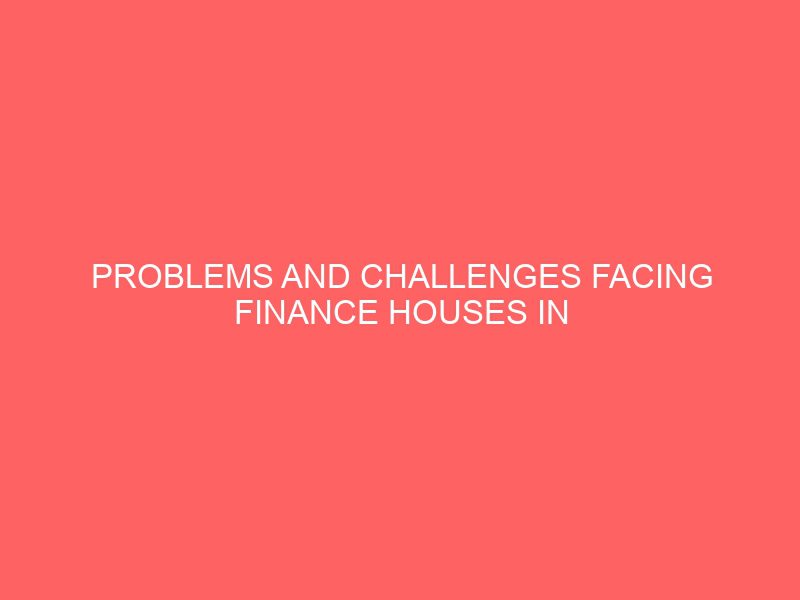Description
CHAPTER ONE
1.0 INTRODUCTION
1.1 BACKGROUND OF THE STUDY
This project is on Problems and Challenges Facing Finance Houses in The Nigerian Economy. One of the universally accepted norms in the present day economic system is that functionality and survival of an economy is dependent on its financial system. Financial system workability depends on the viability of existing financial institutions. Financial institutions are establishment that handle monetary affairs and include banks (commercial, merchant, saving, mortgage and development) institution. Investors, insurance companies, finance and investment companies and discount houses.
Adekanya (1968:224) defines finance houses as privately owned investment companies which gives assistance to companies, which are unable to finance the purchase or leasing borrowing and hire purchase, but service provide by present day finance houses are numerous. Finance house are most often referred to as investment companies or houses.
Mortgage Banking is the mobilization of financial resources especially shares, savings and deposit from surplus economic units for financing housing investment needs of the deficit units in the economy. All banks participate in mortgage banking, but only mortgage finance institutions specialize in mortgage asset creation. The banks provide loans to mortgagor while the mortgage finance institutions give mortgages (i.e. legal change to property or asset) to the primary mortgage institution include:
1. Saving and loans companies.
2. Building societies.
3. Mortgage societies.
4. All of which specialize in financial intermediation for housing development.
Only mortgage banking institutions are allowed by law to have or to accept interest only in land as security. National Housing Co-operatives are housing finance institutions only but not mortgage finance institutions because they do not collect deposits and savings and funds are mainly distributed by members. And state housing corporations depend on state government budgetary allocations for direct housing development. Lastly local thrift institution are not mortgage bankers because there properties and rarely accepted as collateral.
Black and Daniel (1981:59) have the definition of investment companies as devices which allow budget surplus units to pool their fund and purchase investment in a diversified portfolio or financial claim by ways of an ownership. Investment company, Nwokolo (1991:79) said finance house constitute an aspect of non banking institutions.
The study requires significant intermediation effort because financial houses institution are expected to lend on long term even through their funds may be mobilized on a short term basis (BFLs) which are mainly in the banking of borrowing from and lending to the public. The definition on its own centers on borrowing and lending.
A clearly definition of finance houses given by Central Bank of Nigeria (CBN). In its guideline on the establishment of finance house issue on October 9, 1991, the guideline definition a finance houses as a person licensed to carry on finance company business.
1.2 STATEMENTS OF PROBLEM
So many individuals and organization are aware of the challenges such as
1. Lack of adequate legislation guiding their operation.
2. They services are very expensive
3. Many individuals and organization see them as jokers and may be fraudulent.
4. The concentration of the finance companies in trade density urban area is also challenge.








Reviews
There are no reviews yet.